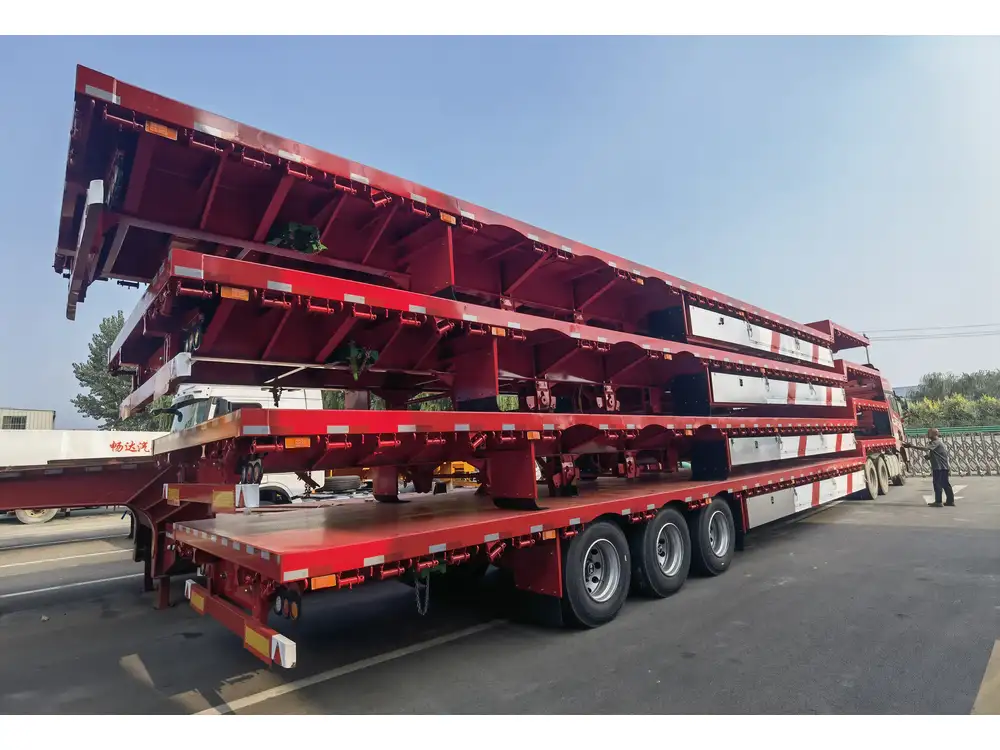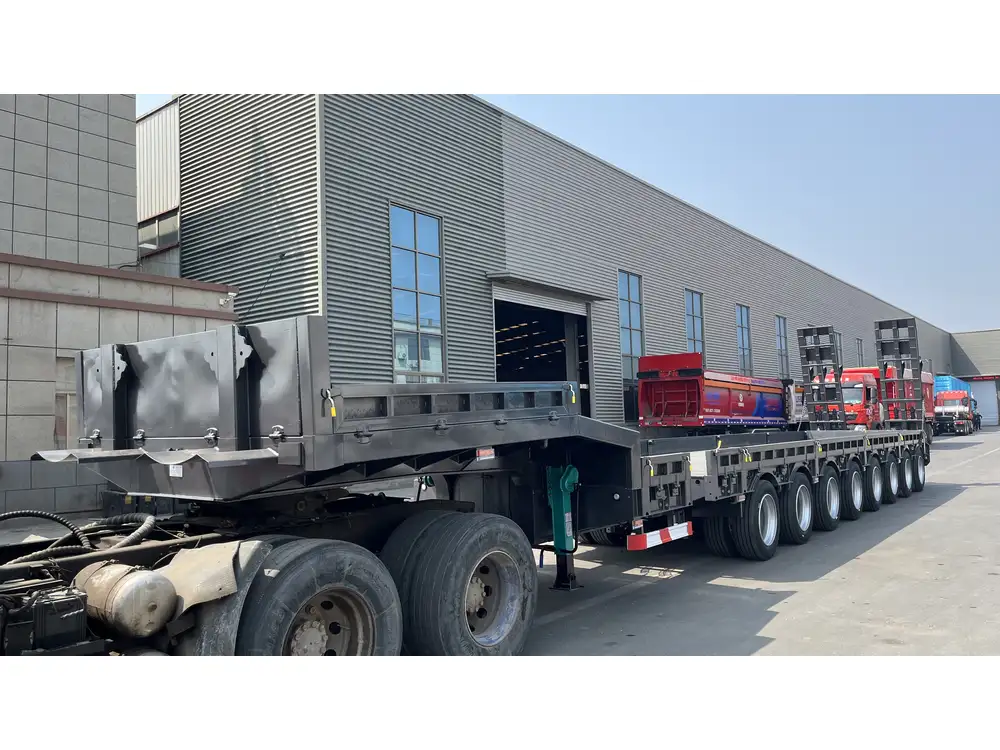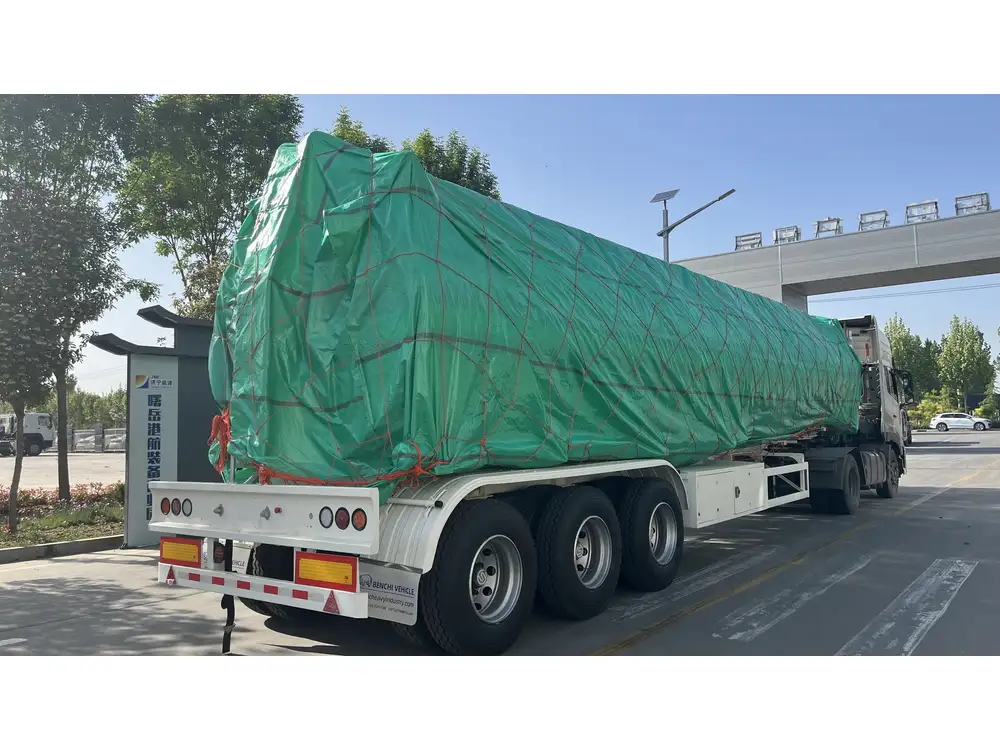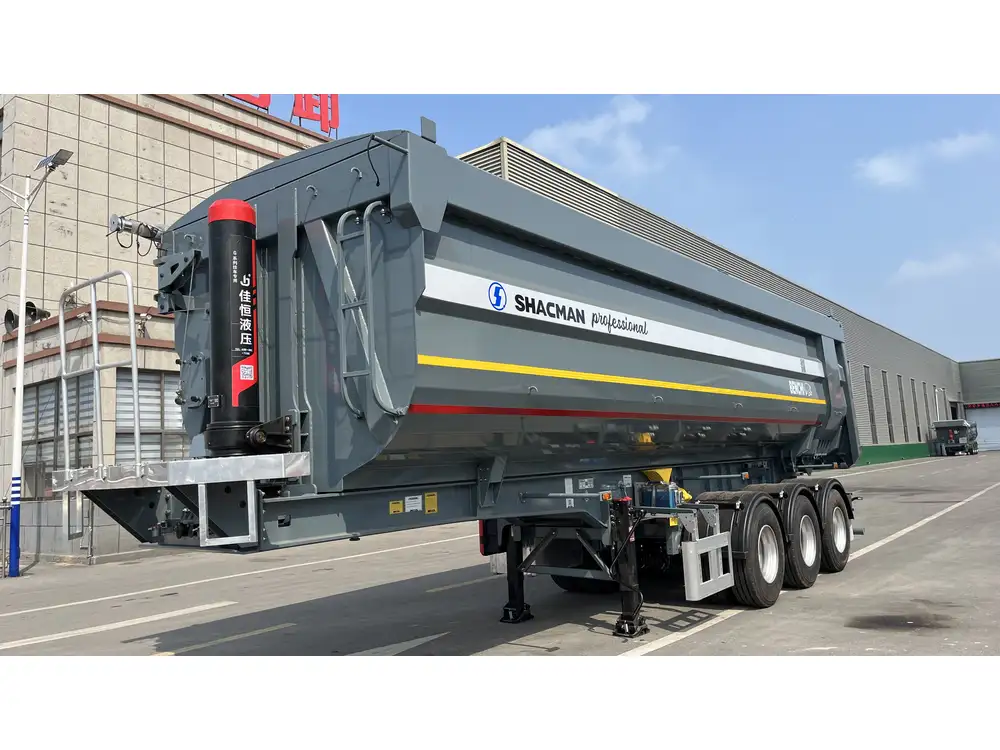When it comes to operating a dump trailer, understanding the type of fluid used in its hydraulic system is crucial for ensuring optimal performance and safety. In this extensive guide, we delve into the various types of fluids applicable to dump trailers, their characteristics, maintenance needs, and tips for optimal usage.
Understanding the Hydraulic System in Dump Trailers
Dump trailers utilize a hydraulic system to facilitate the lifting and lowering of the trailer bed. This system operates under the principles of hydraulic pressure, where fluid dynamics play a vital role. Thus, the appropriate hydraulic fluid not only enhances performance but also prolongs the lifespan of the trailer’s components.
Types of Hydraulic Fluids
Several types of fluids can be used in a dump trailer’s hydraulic system, depending on the manufacturer’s specifications and the intended usage of the trailer. Below, we outline the primary categories and their common applications.

1. Mineral Oil-Based Fluids
Mineral oil-based hydraulic fluids are the most commonly used type in dump trailers. They are derived from refining crude oil, resulting in a range of products that vary in viscosity and performance characteristics.
- Characteristics:
- Good lubricating properties
- Moderate cost
- Widely available
- Applications:
- Suitable for standard dump trailer operations and applications where temperature fluctuations are minimal.
2. Biodegradable Hydraulic Fluids
As environmental awareness rises, biodegradable hydraulic fluids have gained popularity. These fluids are made from renewable resources, making them an eco-friendly choice.
- Characteristics:
- Quick degradation time in the environment
- Minimal toxicity to aquatic life
- Typically more expensive than mineral oil-based fluids
- Applications:
- Ideal for operations near water bodies or in environmentally sensitive areas.
3. Water-Based Fluids
Although less common, water-based hydraulic fluids can be used in specific trailer applications. They primarily consist of water with added additives to improve performance.
- Characteristics:
- Non-flammable
- Lower lubricating properties compared to oil-based fluids
- Applications:
- Primarily in agricultural or specialized operations where fire risk is a concern.

4. Synthetic Hydraulic Fluids
Synthetic fluids are engineered fluids designed for high-performance applications. They can provide superior lubrication and are often better at resisting temperature changes.
- Characteristics:
- Excellent thermal stability
- High resistance to oxidation and degradation
- Generally higher cost
- Applications:
- Often used in high-demand scenarios, including heavy-duty dump trailer uses.
Selecting the Right Fluid: Key Considerations
Choosing the right hydraulic fluid for your dump trailer goes beyond basic compatibility. Here are the key considerations to keep in mind:
| Criterion | Mineral Oil-Based | Biodegradable | Water-Based | Synthetic |
|---|---|---|---|---|
| Environmental Impact | Moderate | Low | Very Low | Moderate to High |
| Cost | Low to Moderate | High | Low | High |
| Temperature Range | Limited | Moderate | Limited | Wide |
| Lubrication Performance | Good | Moderate | Low | Excellent |
| Availability | High | Moderate to Low | Moderate | Moderate |
Compatibility and Manufacturer Specifications
It’s imperative to consult the manufacturer’s manual for your dump trailer before selecting any hydraulic fluid. Using the wrong type of fluid can lead to premature wear of components, system failures, and potential safety risks.

Maintenance of Hydraulic Fluid
Maintaining the hydraulic fluid in your dump trailer is crucial for ensuring long-term efficiency and safety. Here are some best practices for fluid maintenance:
Regular Fluid Checks
- Frequency: Conduct fluid checks before and after each use.
- Visual Inspection: Look for discoloration, contaminants, and debris. Any signs of emulsification or significant color change typically indicate a problem.
Fluid Change Intervals
- Standard Intervals: As a best practice, change the hydraulic fluid at least once a year or after about 1,000 operating hours, whichever comes first.
- Condition-Based Changes: Beyond time and usage, consider changing the hydraulic fluid based on its condition, such as increased debris or decreased performance.

System Filtration
- Filters: Ensure that the hydraulic system is equipped with proper filtration. This helps remove contaminants from the fluid, prolonging its life.
- Filter Replacement: Check and replace filters during fluid changes to maintain optimal performance of the hydraulic system.
Signs Your Hydraulic Fluid Needs Replacement
In some cases, it may not be evident that fluid replacement is necessary until you encounter performance issues. Be mindful of the following warning signs:
- Performance Issues: Difficulty in lifting or lowering the dump trailer can indicate insufficient hydraulic pressure due to contaminated fluid.
- Unusual Noises: Grinding, whining, or other abnormal sounds from the hydraulic pump may signify fluid degradation or low fluid levels.
- Fluid Leakage: If you observe leakages, it could lead to insufficient fluid levels, increasing the importance of immediate replacement.
Environmental Considerations
With increased focus on sustainable practices, selecting biodegradable hydraulic fluids is a proactive approach to minimize environmental impact. Using such fluids not only supports safer operations but also demonstrates a commitment to responsible management and preservation of our natural resources.

Regulatory Compliance
In certain jurisdictions, using environmentally friendly hydraulic fluids may also be necessary to comply with local regulations concerning fluid disposal and environmental protection. Always stay informed regarding regulations affecting your operations.
Summarizing Key Points
- Choose Wisely: Different hydraulic fluids possess unique qualities; select one that suits your operational demands and environmental considerations.
- Follow Manufacturer Recommendations: Always adhere to specifications provided by the trailer manufacturer to ensure optimal performance and longevity.
- Prioritize Maintenance: Regular checks, timely replacements, and quality filtration are keys to keeping your hydraulic system in peak condition.
Final Thoughts
Understanding “what kind of fluid goes in a dump trailer” is critical for maintaining its performance and safety. Selecting the right hydraulic fluid, coupled with diligent maintenance practices, ensures efficient operations and extends the lifespan of your trailer. Whether you choose mineral oils or more environmentally friendly options, the focus should always remain on aligning your choice with both operational needs and sustainability considerations. Engage in a proactive approach, and your dump trailer will serve you effectively for years to come.
By navigating the complexities associated with hydraulic fluids, you’re better prepared to make informed choices, fostering both operational efficiency and environmental responsibility in your hauling ventures.



